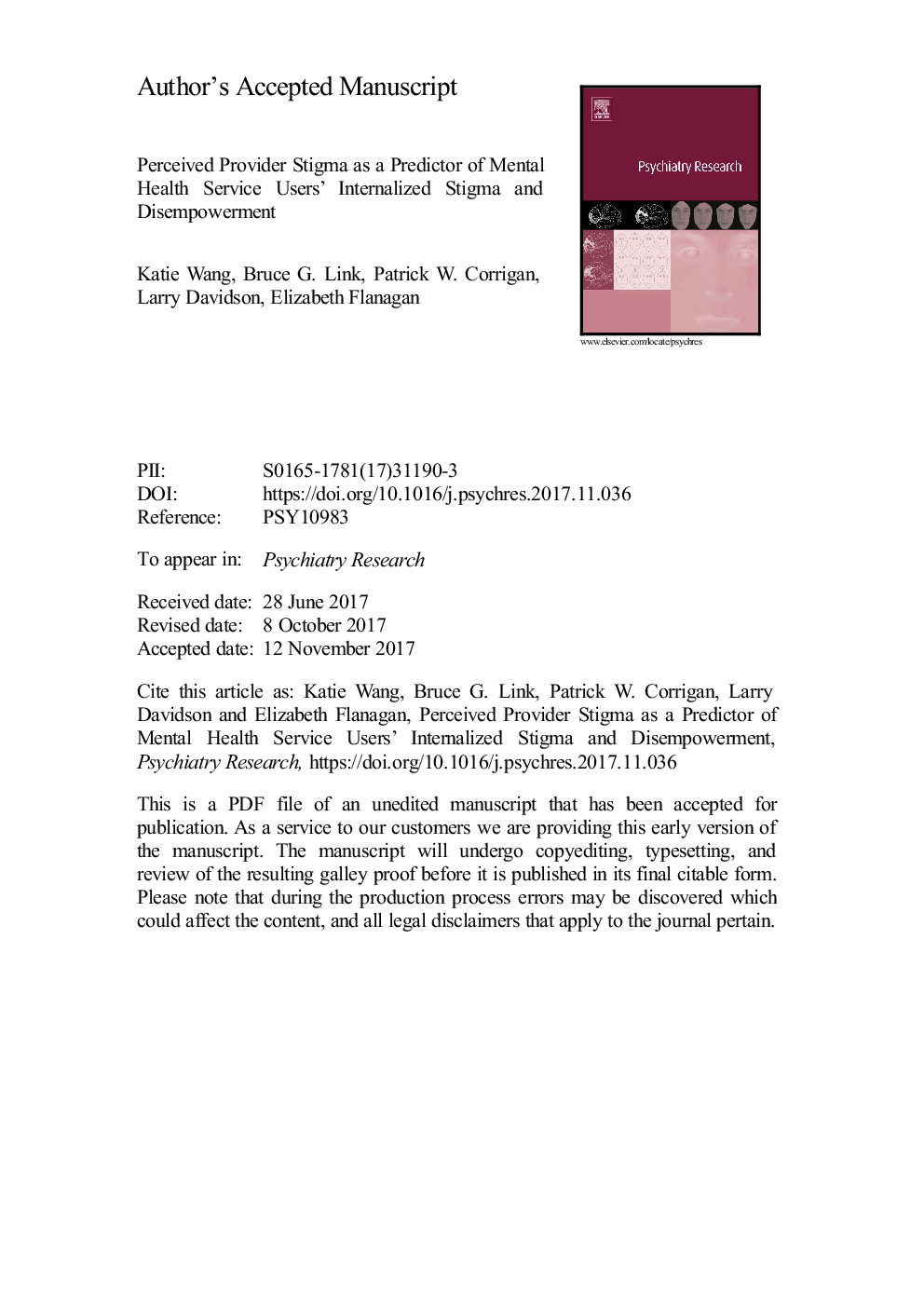ترجمه فارسی عنوان مقاله
نگرانی ارائه دهنده درک شده به عنوان یک پیش بینی کننده از بین بردن انگیزه و عدم توانایی درونی کاربران خدمات درمانی روان
عنوان انگلیسی
Perceived provider stigma as a predictor of mental health service users' internalized stigma and disempowerment
| کد مقاله | سال انتشار | تعداد صفحات مقاله انگلیسی |
|---|---|---|
| 115936 | 2018 | 26 صفحه PDF |
منبع

Publisher : Elsevier - Science Direct (الزویر - ساینس دایرکت)
Journal : Psychiatry Research, Volume 259, January 2018, Pages 526-531
ترجمه کلمات کلیدی
ننگ درک شده، خشونت داخلی متخصصین بهداشت روانی، کاربران خدمات بهداشت روان، توانمندسازی،
کلمات کلیدی انگلیسی
Perceived stigma; Internalized stigma; Mental health professionals; Mental health service users; Empowerment;

